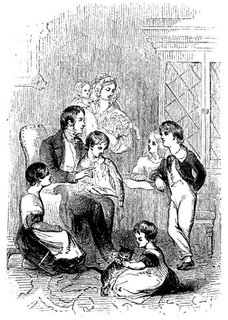I re-read a portion of puritan Isaac Watts' Logic this week at the request of a friend. In this section Watts details the sources of error in our judgment which largely stem from the fondness we have for ourselves. In a most powerful way he reveals the devastation our prejudices have on a right understanding of Scripture. I'll add that American Christians, with our individualistic and anti-authoritarian tendencies, need to pay special heed to this rebuke. Some of Watts' excerpts,
We set up our own opinions as tests of orthodoxy. We ought to bring our minds free, unbiased, and teachable, to learn our religion from the word of God; but we have generally formed all the lesser as well as greater points of religion beforehand, and then we read the prophets and apostles, only to pervert them to conform our own opinions.
We become sharp-sighted as to find our own opinions in those places of Scripture where the holy writers never thought of them, nor the Holy Spirit intended them. At other times, our prejudices bring such a dimness upon the sight that we cannot read anything that opposes our views, though it be written with sunbeams, and in the plainest language [Watts cites Luther on the Epistle of James, Catholics on the Apocyphra].
If the common text be not favorable to our opinion...the common understanding most be supposed to be defective or redundant, and the sense of it shall be literal or metaphorical, according as it best supports our own scheme. We are ready to find something in every chapter of the Bible to countenance our own private sentiments; and we love those chapters best which speak our own opinion plainest.
I believe our prejudices largely explain the disunity of the Church. The solution? Watts again: "Since we find such a swarm of prejudices, the weakness of our reason, our insufficiency to guard ourselves from error, we must direct ourselves to Heaven, and implore the God of truth to lead us into all truth, and to ask wisdom of Him who giveth liberally to them that ask it."












































